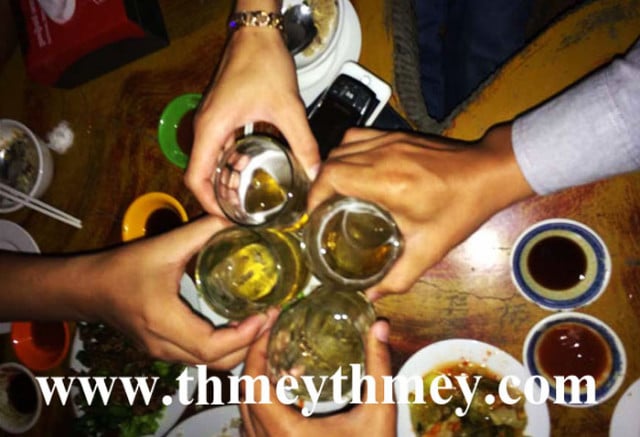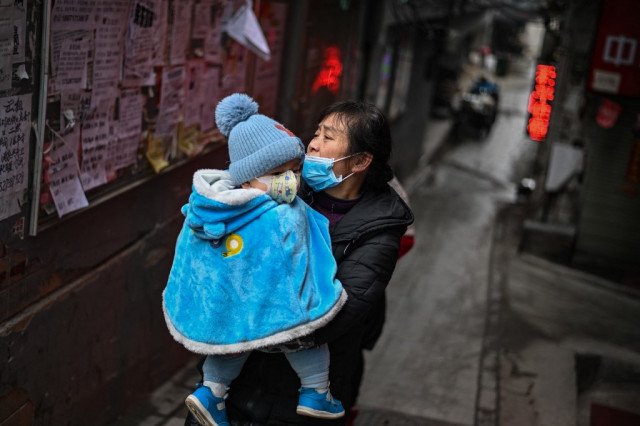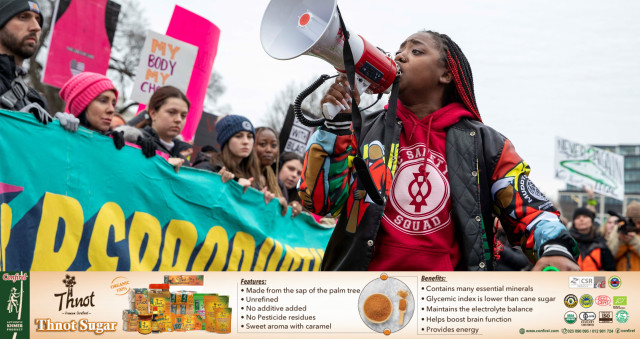Civil Society Groups Call for Permanent Restrictions on Alcohol Ads and Sales

- Mao Sopha and Teng Yalirozy
- May 9, 2021 8:03 AM
These Cambodian government regulations set to curb the spread of COVID-19 should not be removed, they say
PHNOM PENH--As the temporary ban on alcohol sales and advertisement remains in place to help curb the spread of COVID-19, civil society groups and intellectuals have called on the Cambodian government to keep it in place permanently.
Around 38 civil society organizations on May 4 issued a joint statement, expressing support for the nationwide ban of alcohol sales issued by the authorities as part of their efforts to prevent the spread of the coronavirus.
The decision to forbid the sale of alcohol in the country was made by Prime Minister Hun Sen as the lockdown was implemented in April 2021. Following his decision, Minister of Information Khieu Kanharith instructed all media to suspend liquor advertisement from April 15 to 30.
The government has viewed the moratorium on alcohol advertisement, sales and consumption in bars and restaurants as a practical measure to stop people from gathering, which could increase the risk of COVID-19 infection.
Since the lockdown in Phnom Penh and Takhmao was lifted with zone-based restrictions being extended to May 12, the civil society organizations in their statement call on the Cambodian government to permanently bar alcohol advertisement both in the media and on billboards.
According to these organizations, alcohol consumption increases the risk of contracting the coronavirus in addition to having a negative impact on people’s health and on society, being the cause of traffic accidents, violence and more than 200 types of diseases.
In their statement, the NGOs said that restrictions on the sale and consumption of alcoholic beverages should also be imposed to promote health and social well-being as this could help people save money and reduce poverty.
“Permanent closure of alcohol advertising will reduce the spread of COVID-19 and help people after the pandemic ends,” the statement read. “Reducing alcohol consumption to improve health and well-being, as well as saving money to resolve debt crises and reduce poverty in society.”
Mom Kong, president of the Cambodia Movement for Health Organization (CMH), concurred that a permanent ad ban on alcohol can help both national and family economy.
“Banning [alcohol] advertising is very beneficial to the nation and the people,” he said, pointing out that doing so also contributes to reducing traffic accidents and shifting people’s mindset toward spending money on useful items.
Economic analyst Chan Sophal said he also regards a policy on alcohol advertising and sales an effective approach contributing to the prevention of social problems, and especially illness and violence.
Banning alcohol ads in the media and on billboards: an issue being debated for years
When contacted, government spokesperson Phay Siphan declined to comment on the request of civil society organizations, and referred the questions to the Ministry of Commerce and the Ministry of Information.
When asked whether the government would consider the request of the civil society organizations and if doing so would affect the country’s economy, Ministry of Commerce spokesperson Seang Thai did not provide answers but instead asked: “To whom all these questions should go to for sure?”
Meas Sophorn, spokesperson for the Ministry of Information pointed out that Cambodia currently does not have a law on alcohol production or control. So, he added, it is difficult for the ministry to permanently forbid alcoholic product promotion.
“So far, we have not been able to decide whether [alcohol advertising] will be stopped permanently or not,” he said. “We don’t have a law…like the law on tobacco.”
Sophorn continued that the ministry has often received complaints from media outlets’ owners concerning the impact the alcohol ban has had on their income as alcohol advertising is part of their revenues, which can ensure the sustainability of their outlets.
Therefore, this issue should be carefully considered, he added.
But Sophorn also stressed that the ministry always pays attention to the promotion of alcohol and has advised media outlets to be mindful, making sure that their advertorial contents will not prompt more people to consume alcohol.
Moreover, alcohol promotion must be suspended during major national festivals, Sophorn said.
Political analyst Lao Mong Hay also expressed his support for a permanent ban on alcohol promotion as well as restrictions on alcohol sales.
“Do not just suspend: Please stop alcohol promotion forever,” he wrote in a statement on Facebook on April 24. “The cessation does not affect a drinker’s freedom…[With] no promotion, a drinker will not have a hard time buying [liquor].”
Mong Hay pointed out that Thailand and Sri Lanka have had in place laws prohibiting all forms of alcohol advertisement.
However, Sok Eysan, spokesperson for the ruling Cambodian People’s Party (CPP), said that prohibiting alcohol sales is a violation of alcohol sellers’ rights.
“Forbidding the sale of alcohol is a violation of sellers’ right,” he said. “Selling liquor is the right of sellers and advertisers. Buying it or not is the right of consumers.”
Eysan added that people should have self-control over their alcohol consumption as alcohol can also be good for health.
“Alcohol is given to drink for health, not to drink until it causes harm to [one’s] health,” he said. “Drinking alcohol until it affects health is because of people who do not know how to control themselves: They drink to die, not to live.”
The Ministry of Health has been drafting a law to regulate the purchase and consumption of alcohol since 2015. But as of May 2021, the draft law has not been passed and promulgated. The draft law states that the legal age to drink is 21 years old, and that the sale of alcohol is prohibited between 12 a.m. and 6 a.m..
According to a report of the National Road Safety Committee, 250 persons in Cambodia died in 2017 while driving under the influence, and around $44 million was lost due to damages to public property related to alcohol consumption.
The Cambodia Movement for Health Organization (CMH) published a statement on its website in 2019 to the effect that alcohol consumption was the second leading cause of death and injuries in traffic accidents in the country.















